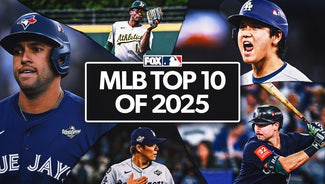
MLB lobby trades disappear at winter meetings
NASHVILLE, Tenn. (AP) Forty years ago this month, Chicago White Sox owner Bill Veeck and general manager Roland Hemond set up a table in the lobby of the Diplomat Hotel in Hollywood, Florida, with an ''Open for Business Anytime'' sign and made four trades in an hour that involved Mickey Lolich, Rusty Staub and Ralph Garr.
That was baseball's last winter meetings before free agency. The average salary was just under $45,000 a year and advanced analytics was batting average with runners in scoring position.
This season, Los Angeles Dodgers pitcher Clayton Kershaw earned $160,656 a day and teams hold multiple conference calls before trades, mulling over statistical spreadsheets, video, personal background files and medical reports before finalizing deals.
''It wouldn't work today,'' Hemond, now an Arizona Diamondbacks special assistant, said Sunday. ''You're trying to hide the fact that you're talking about a free agent or a big trade.''
Baseball executives gather this week at the sprawling, 2,881-room Gaylord Opryland Resort and Convention Center, where the four-day winter meetings open Monday. Some big deals already have been struck, with Boston giving left-hander David Price a $217 million, seven-year contract, the largest ever for a pitcher, and the Diamondbacks reaching a $206.5 million, six-year deal with right-hander Zack Greinke, subject to a successful physical. Greinke's $34.4 million average salary would be a big league record.
Still, there is much to discuss.
Accomplished hitters Chris Davis, Yoenis Cespedes, Pedro Alvarez, Chris Carter, Alex Gordon, Jason Heyward, Justin Upton and Ben Zobrist remain on the market along with pitchers Ian Kennedy, Doug Fister, Scott Kazmir, Johnny Cueto and Yovani Gallardo. The Cincinnati Reds are shopping closer Aroldis Chapman, the hardest-throwing pitcher in the major leagues, before he can become a free agent next November.
Twelve trades involving 44 players were made over four days in San Diego last December, according to Major League Baseball, the most at a winter meetings since 2006.
Ahead of this year's meetings, reliever Ryan Madson agreed to a $22 million, three-year contract with Oakland, a person with direct knowledge of the deal said Sunday. The person spoke on condition of anonymity because a physical was still needed to finalize the deal.
Free-agent reliever Darren O'Day tweeted it was ''premature'' to say he had agreed to a $31 million, four-year deal to remain with the Baltimore Orioles, who two years ago failed to finalize a deal with Grant Balfour over the closer's physical.
''The team has some more work to do if there's going to be an agreement with Darren O'Day,'' Orioles executive vice president of baseball operations Dan Duquette said.
The Los Angeles Dodgers were nearing a deal to re-sign second baseman Chase Utley.
Baseball officials past and present already were at the hotel, so vast the walk from a lobby to a room can take 20 minutes.
Tommy Lasorda, the 88-year-old former Los Angeles Dodgers manager, remembered the old days, when trades came together quickly.
''You'd go to a suite and talk to people. They'd have a bar all set up,'' he said. ''You'd walk in and you'd say, I'll give you so and so. What did he say? He said, yeah, OK, it's a deal. But now you can't do that. You've got so much to find out about the players. It's just not easy anymore.''
In the New York Mets suite, team executives prepared for meetings by setting up a large projector screen and two white easels around a long conference table. A large flat screen television was on a wall.
''When the defensive metrics come - and it's not that far away to where we really have a better grasp - I think that may change things considerably,'' Mets assistant general manager John Ricco said. ''A lot of the data we're using, we had five or 10 years ago. And maybe more teams are using it now, so that might make it a little more challenging.''
Hemond thought back to his dramatic trades at the 1975 meetings. Veeck had just regained control of the White Sox and gave him the OK to put up the sign in the hotel lobby. Hemond noticed a nearby jack and arranged with an assistant manager to install a phone. Veeck then told Buck Peden, Chicago's publicity director, to call every half hour.
''Oh, hi Buzzie, how you doing? When are you coming down to see us?''' Hemond answered one of those calls, a reference to Buzzie Bavasi, then the San Diego Padres president.
''Hey, Bing,'' Hemond answered another call, making believe he was speaking with St. Louis Cardinals general manager Bing Devine.
''People would look around laughing, saying, Jesus, this looks like it's working `cause they're getting phone calls,'' Hemond recalled with a laugh. ''I don't think you could re-enact it today.''
---
AP Baseball Writer Janie McCauley contributed to this report.

